-
EXECUTIVE SUMMARY
-
Market Overview
-
Key Findings
-
Market Segmentation
-
Competitive Landscape
-
Challenges and Opportunities
-
Future Outlook
-
MARKET INTRODUCTION
-
Definition
-
Scope of the study
- Research Objective
- Assumption
- Limitations
-
RESEARCH METHODOLOGY
-
Overview
-
Data Mining
-
Secondary Research
-
Primary Research
- Primary Interviews and Information Gathering Process
- Breakdown of Primary Respondents
-
Forecasting Model
-
Market Size Estimation
- Bottom-Up Approach
- Top-Down Approach
-
Data Triangulation
-
Validation
-
MARKET DYNAMICS
-
Overview
-
Drivers
-
Restraints
-
Opportunities
-
MARKET FACTOR ANALYSIS
-
Value chain Analysis
-
Porter's Five Forces Analysis
- Bargaining Power of Suppliers
- Bargaining Power of Buyers
- Threat of New Entrants
- Threat of Substitutes
- Intensity of Rivalry
-
COVID-19 Impact Analysis
- Market Impact Analysis
- Regional Impact
- Opportunity and Threat Analysis
-
COGNITIVE ASSESSMENT AND TRAINING MARKET, BY TYPE (USD BILLION)
-
Cognitive Assessment Tools
-
Cognitive Training Programs
-
Memory Improvement Tools
-
Brain Games
-
COGNITIVE ASSESSMENT AND TRAINING MARKET, BY APPLICATION (USD BILLION)
-
Education
-
Healthcare
-
Corporate Training
-
Research
-
COGNITIVE ASSESSMENT AND TRAINING MARKET, BY END USER (USD BILLION)
-
Individuals
-
Educational Institutions
-
Corporate Organizations
-
Healthcare Providers
-
COGNITIVE ASSESSMENT AND TRAINING MARKET, BY DELIVERY MODE (USD BILLION)
-
Online
-
Offline
-
Blended
-
COGNITIVE ASSESSMENT AND TRAINING MARKET, BY REGIONAL (USD BILLION)
-
North America
- US
- Canada
-
Europe
- Germany
- UK
- France
- Russia
- Italy
- Spain
- Rest of Europe
-
APAC
- China
- India
- Japan
- South Korea
- Malaysia
- Thailand
- Indonesia
- Rest of APAC
-
South America
- Brazil
- Mexico
- Argentina
- Rest of South America
-
MEA
- GCC Countries
- South Africa
- Rest of MEA
-
COMPETITIVE LANDSCAPE
-
Overview
-
Competitive Analysis
-
Market share Analysis
-
Major Growth Strategy in the Cognitive Assessment and Training Market
-
Competitive Benchmarking
-
Leading Players in Terms of Number of Developments in the Cognitive Assessment and Training Market
-
Key developments and growth strategies
- New Product Launch/Service Deployment
- Merger & Acquisitions
- Joint Ventures
-
Major Players Financial Matrix
- Sales and Operating Income
- Major Players R&D Expenditure. 2023
-
COMPANY PROFILES
-
Pearson
- Financial Overview
- Products Offered
- Key Developments
- SWOT Analysis
- Key Strategies
-
PSYCOR
- Financial Overview
- Products Offered
- Key Developments
- SWOT Analysis
- Key Strategies
-
Mindset Health
- Financial Overview
- Products Offered
- Key Developments
- SWOT Analysis
- Key Strategies
-
Happy Neuron
- Financial Overview
- Products Offered
- Key Developments
- SWOT Analysis
- Key Strategies
-
NeuroNation
- Financial Overview
- Products Offered
- Key Developments
- SWOT Analysis
- Key Strategies
-
Cognitive Labs
- Financial Overview
- Products Offered
- Key Developments
- SWOT Analysis
- Key Strategies
-
Akili Interactive
- Financial Overview
- Products Offered
- Key Developments
- SWOT Analysis
- Key Strategies
-
Posit Science
- Financial Overview
- Products Offered
- Key Developments
- SWOT Analysis
- Key Strategies
-
Lumosity
- Financial Overview
- Products Offered
- Key Developments
- SWOT Analysis
- Key Strategies
-
BrainMetrix
- Financial Overview
- Products Offered
- Key Developments
- SWOT Analysis
- Key Strategies
-
WC2
- Financial Overview
- Products Offered
- Key Developments
- SWOT Analysis
- Key Strategies
-
BrainWare
- Financial Overview
- Products Offered
- Key Developments
- SWOT Analysis
- Key Strategies
-
Cogmed
- Financial Overview
- Products Offered
- Key Developments
- SWOT Analysis
- Key Strategies
-
Mayo Clinic
- Financial Overview
- Products Offered
- Key Developments
- SWOT Analysis
- Key Strategies
-
CogniFit
- Financial Overview
- Products Offered
- Key Developments
- SWOT Analysis
- Key Strategies
-
APPENDIX
-
References
-
Related Reports
-
LIST OF TABLES
-
LIST OF ASSUMPTIONS
-
NORTH AMERICA COGNITIVE ASSESSMENT AND TRAINING MARKET SIZE ESTIMATES & FORECAST, BY TYPE, 2019-2035 (USD BILLIONS)
-
NORTH AMERICA COGNITIVE ASSESSMENT AND TRAINING MARKET SIZE ESTIMATES & FORECAST, BY APPLICATION, 2019-2035 (USD BILLIONS)
-
NORTH AMERICA COGNITIVE ASSESSMENT AND TRAINING MARKET SIZE ESTIMATES & FORECAST, BY END USER, 2019-2035 (USD BILLIONS)
-
NORTH AMERICA COGNITIVE ASSESSMENT AND TRAINING MARKET SIZE ESTIMATES & FORECAST, BY DELIVERY MODE, 2019-2035 (USD BILLIONS)
-
NORTH AMERICA COGNITIVE ASSESSMENT AND TRAINING MARKET SIZE ESTIMATES & FORECAST, BY REGIONAL, 2019-2035 (USD BILLIONS)
-
US COGNITIVE ASSESSMENT AND TRAINING MARKET SIZE ESTIMATES & FORECAST, BY TYPE, 2019-2035 (USD BILLIONS)
-
US COGNITIVE ASSESSMENT AND TRAINING MARKET SIZE ESTIMATES & FORECAST, BY APPLICATION, 2019-2035 (USD BILLIONS)
-
US COGNITIVE ASSESSMENT AND TRAINING MARKET SIZE ESTIMATES & FORECAST, BY END USER, 2019-2035 (USD BILLIONS)
-
US COGNITIVE ASSESSMENT AND TRAINING MARKET SIZE ESTIMATES & FORECAST, BY DELIVERY MODE, 2019-2035 (USD BILLIONS)
-
US COGNITIVE ASSESSMENT AND TRAINING MARKET SIZE ESTIMATES & FORECAST, BY REGIONAL, 2019-2035 (USD BILLIONS)
-
CANADA COGNITIVE ASSESSMENT AND TRAINING MARKET SIZE ESTIMATES & FORECAST, BY TYPE, 2019-2035 (USD BILLIONS)
-
CANADA COGNITIVE ASSESSMENT AND TRAINING MARKET SIZE ESTIMATES & FORECAST, BY APPLICATION, 2019-2035 (USD BILLIONS)
-
CANADA COGNITIVE ASSESSMENT AND TRAINING MARKET SIZE ESTIMATES & FORECAST, BY END USER, 2019-2035 (USD BILLIONS)
-
CANADA COGNITIVE ASSESSMENT AND TRAINING MARKET SIZE ESTIMATES & FORECAST, BY DELIVERY MODE, 2019-2035 (USD BILLIONS)
-
CANADA COGNITIVE ASSESSMENT AND TRAINING MARKET SIZE ESTIMATES & FORECAST, BY REGIONAL, 2019-2035 (USD BILLIONS)
-
EUROPE COGNITIVE ASSESSMENT AND TRAINING MARKET SIZE ESTIMATES & FORECAST, BY TYPE, 2019-2035 (USD BILLIONS)
-
EUROPE COGNITIVE ASSESSMENT AND TRAINING MARKET SIZE ESTIMATES & FORECAST, BY APPLICATION, 2019-2035 (USD BILLIONS)
-
EUROPE COGNITIVE ASSESSMENT AND TRAINING MARKET SIZE ESTIMATES & FORECAST, BY END USER, 2019-2035 (USD BILLIONS)
-
EUROPE COGNITIVE ASSESSMENT AND TRAINING MARKET SIZE ESTIMATES & FORECAST, BY DELIVERY MODE, 2019-2035 (USD BILLIONS)
-
EUROPE COGNITIVE ASSESSMENT AND TRAINING MARKET SIZE ESTIMATES & FORECAST, BY REGIONAL, 2019-2035 (USD BILLIONS)
-
GERMANY COGNITIVE ASSESSMENT AND TRAINING MARKET SIZE ESTIMATES & FORECAST, BY TYPE, 2019-2035 (USD BILLIONS)
-
GERMANY COGNITIVE ASSESSMENT AND TRAINING MARKET SIZE ESTIMATES & FORECAST, BY APPLICATION, 2019-2035 (USD BILLIONS)
-
GERMANY COGNITIVE ASSESSMENT AND TRAINING MARKET SIZE ESTIMATES & FORECAST, BY END USER, 2019-2035 (USD BILLIONS)
-
GERMANY COGNITIVE ASSESSMENT AND TRAINING MARKET SIZE ESTIMATES & FORECAST, BY DELIVERY MODE, 2019-2035 (USD BILLIONS)
-
GERMANY COGNITIVE ASSESSMENT AND TRAINING MARKET SIZE ESTIMATES & FORECAST, BY REGIONAL, 2019-2035 (USD BILLIONS)
-
UK COGNITIVE ASSESSMENT AND TRAINING MARKET SIZE ESTIMATES & FORECAST, BY TYPE, 2019-2035 (USD BILLIONS)
-
UK COGNITIVE ASSESSMENT AND TRAINING MARKET SIZE ESTIMATES & FORECAST, BY APPLICATION, 2019-2035 (USD BILLIONS)
-
UK COGNITIVE ASSESSMENT AND TRAINING MARKET SIZE ESTIMATES & FORECAST, BY END USER, 2019-2035 (USD BILLIONS)
-
UK COGNITIVE ASSESSMENT AND TRAINING MARKET SIZE ESTIMATES & FORECAST, BY DELIVERY MODE, 2019-2035 (USD BILLIONS)
-
UK COGNITIVE ASSESSMENT AND TRAINING MARKET SIZE ESTIMATES & FORECAST, BY REGIONAL, 2019-2035 (USD BILLIONS)
-
FRANCE COGNITIVE ASSESSMENT AND TRAINING MARKET SIZE ESTIMATES & FORECAST, BY TYPE, 2019-2035 (USD BILLIONS)
-
FRANCE COGNITIVE ASSESSMENT AND TRAINING MARKET SIZE ESTIMATES & FORECAST, BY APPLICATION, 2019-2035 (USD BILLIONS)
-
FRANCE COGNITIVE ASSESSMENT AND TRAINING MARKET SIZE ESTIMATES & FORECAST, BY END USER, 2019-2035 (USD BILLIONS)
-
FRANCE COGNITIVE ASSESSMENT AND TRAINING MARKET SIZE ESTIMATES & FORECAST, BY DELIVERY MODE, 2019-2035 (USD BILLIONS)
-
FRANCE COGNITIVE ASSESSMENT AND TRAINING MARKET SIZE ESTIMATES & FORECAST, BY REGIONAL, 2019-2035 (USD BILLIONS)
-
RUSSIA COGNITIVE ASSESSMENT AND TRAINING MARKET SIZE ESTIMATES & FORECAST, BY TYPE, 2019-2035 (USD BILLIONS)
-
RUSSIA COGNITIVE ASSESSMENT AND TRAINING MARKET SIZE ESTIMATES & FORECAST, BY APPLICATION, 2019-2035 (USD BILLIONS)
-
RUSSIA COGNITIVE ASSESSMENT AND TRAINING MARKET SIZE ESTIMATES & FORECAST, BY END USER, 2019-2035 (USD BILLIONS)
-
RUSSIA COGNITIVE ASSESSMENT AND TRAINING MARKET SIZE ESTIMATES & FORECAST, BY DELIVERY MODE, 2019-2035 (USD BILLIONS)
-
RUSSIA COGNITIVE ASSESSMENT AND TRAINING MARKET SIZE ESTIMATES & FORECAST, BY REGIONAL, 2019-2035 (USD BILLIONS)
-
ITALY COGNITIVE ASSESSMENT AND TRAINING MARKET SIZE ESTIMATES & FORECAST, BY TYPE, 2019-2035 (USD BILLIONS)
-
ITALY COGNITIVE ASSESSMENT AND TRAINING MARKET SIZE ESTIMATES & FORECAST, BY APPLICATION, 2019-2035 (USD BILLIONS)
-
ITALY COGNITIVE ASSESSMENT AND TRAINING MARKET SIZE ESTIMATES & FORECAST, BY END USER, 2019-2035 (USD BILLIONS)
-
ITALY COGNITIVE ASSESSMENT AND TRAINING MARKET SIZE ESTIMATES & FORECAST, BY DELIVERY MODE, 2019-2035 (USD BILLIONS)
-
ITALY COGNITIVE ASSESSMENT AND TRAINING MARKET SIZE ESTIMATES & FORECAST, BY REGIONAL, 2019-2035 (USD BILLIONS)
-
SPAIN COGNITIVE ASSESSMENT AND TRAINING MARKET SIZE ESTIMATES & FORECAST, BY TYPE, 2019-2035 (USD BILLIONS)
-
SPAIN COGNITIVE ASSESSMENT AND TRAINING MARKET SIZE ESTIMATES & FORECAST, BY APPLICATION, 2019-2035 (USD BILLIONS)
-
SPAIN COGNITIVE ASSESSMENT AND TRAINING MARKET SIZE ESTIMATES & FORECAST, BY END USER, 2019-2035 (USD BILLIONS)
-
SPAIN COGNITIVE ASSESSMENT AND TRAINING MARKET SIZE ESTIMATES & FORECAST, BY DELIVERY MODE, 2019-2035 (USD BILLIONS)
-
SPAIN COGNITIVE ASSESSMENT AND TRAINING MARKET SIZE ESTIMATES & FORECAST, BY REGIONAL, 2019-2035 (USD BILLIONS)
-
REST OF EUROPE COGNITIVE ASSESSMENT AND TRAINING MARKET SIZE ESTIMATES & FORECAST, BY TYPE, 2019-2035 (USD BILLIONS)
-
REST OF EUROPE COGNITIVE ASSESSMENT AND TRAINING MARKET SIZE ESTIMATES & FORECAST, BY APPLICATION, 2019-2035 (USD BILLIONS)
-
REST OF EUROPE COGNITIVE ASSESSMENT AND TRAINING MARKET SIZE ESTIMATES & FORECAST, BY END USER, 2019-2035 (USD BILLIONS)
-
REST OF EUROPE COGNITIVE ASSESSMENT AND TRAINING MARKET SIZE ESTIMATES & FORECAST, BY DELIVERY MODE, 2019-2035 (USD BILLIONS)
-
REST OF EUROPE COGNITIVE ASSESSMENT AND TRAINING MARKET SIZE ESTIMATES & FORECAST, BY REGIONAL, 2019-2035 (USD BILLIONS)
-
APAC COGNITIVE ASSESSMENT AND TRAINING MARKET SIZE ESTIMATES & FORECAST, BY TYPE, 2019-2035 (USD BILLIONS)
-
APAC COGNITIVE ASSESSMENT AND TRAINING MARKET SIZE ESTIMATES & FORECAST, BY APPLICATION, 2019-2035 (USD BILLIONS)
-
APAC COGNITIVE ASSESSMENT AND TRAINING MARKET SIZE ESTIMATES & FORECAST, BY END USER, 2019-2035 (USD BILLIONS)
-
APAC COGNITIVE ASSESSMENT AND TRAINING MARKET SIZE ESTIMATES & FORECAST, BY DELIVERY MODE, 2019-2035 (USD BILLIONS)
-
APAC COGNITIVE ASSESSMENT AND TRAINING MARKET SIZE ESTIMATES & FORECAST, BY REGIONAL, 2019-2035 (USD BILLIONS)
-
CHINA COGNITIVE ASSESSMENT AND TRAINING MARKET SIZE ESTIMATES & FORECAST, BY TYPE, 2019-2035 (USD BILLIONS)
-
CHINA COGNITIVE ASSESSMENT AND TRAINING MARKET SIZE ESTIMATES & FORECAST, BY APPLICATION, 2019-2035 (USD BILLIONS)
-
CHINA COGNITIVE ASSESSMENT AND TRAINING MARKET SIZE ESTIMATES & FORECAST, BY END USER, 2019-2035 (USD BILLIONS)
-
CHINA COGNITIVE ASSESSMENT AND TRAINING MARKET SIZE ESTIMATES & FORECAST, BY DELIVERY MODE, 2019-2035 (USD BILLIONS)
-
CHINA COGNITIVE ASSESSMENT AND TRAINING MARKET SIZE ESTIMATES & FORECAST, BY REGIONAL, 2019-2035 (USD BILLIONS)
-
INDIA COGNITIVE ASSESSMENT AND TRAINING MARKET SIZE ESTIMATES & FORECAST, BY TYPE, 2019-2035 (USD BILLIONS)
-
INDIA COGNITIVE ASSESSMENT AND TRAINING MARKET SIZE ESTIMATES & FORECAST, BY APPLICATION, 2019-2035 (USD BILLIONS)
-
INDIA COGNITIVE ASSESSMENT AND TRAINING MARKET SIZE ESTIMATES & FORECAST, BY END USER, 2019-2035 (USD BILLIONS)
-
INDIA COGNITIVE ASSESSMENT AND TRAINING MARKET SIZE ESTIMATES & FORECAST, BY DELIVERY MODE, 2019-2035 (USD BILLIONS)
-
INDIA COGNITIVE ASSESSMENT AND TRAINING MARKET SIZE ESTIMATES & FORECAST, BY REGIONAL, 2019-2035 (USD BILLIONS)
-
JAPAN COGNITIVE ASSESSMENT AND TRAINING MARKET SIZE ESTIMATES & FORECAST, BY TYPE, 2019-2035 (USD BILLIONS)
-
JAPAN COGNITIVE ASSESSMENT AND TRAINING MARKET SIZE ESTIMATES & FORECAST, BY APPLICATION, 2019-2035 (USD BILLIONS)
-
JAPAN COGNITIVE ASSESSMENT AND TRAINING MARKET SIZE ESTIMATES & FORECAST, BY END USER, 2019-2035 (USD BILLIONS)
-
JAPAN COGNITIVE ASSESSMENT AND TRAINING MARKET SIZE ESTIMATES & FORECAST, BY DELIVERY MODE, 2019-2035 (USD BILLIONS)
-
JAPAN COGNITIVE ASSESSMENT AND TRAINING MARKET SIZE ESTIMATES & FORECAST, BY REGIONAL, 2019-2035 (USD BILLIONS)
-
SOUTH KOREA COGNITIVE ASSESSMENT AND TRAINING MARKET SIZE ESTIMATES & FORECAST, BY TYPE, 2019-2035 (USD BILLIONS)
-
SOUTH KOREA COGNITIVE ASSESSMENT AND TRAINING MARKET SIZE ESTIMATES & FORECAST, BY APPLICATION, 2019-2035 (USD BILLIONS)
-
SOUTH KOREA COGNITIVE ASSESSMENT AND TRAINING MARKET SIZE ESTIMATES & FORECAST, BY END USER, 2019-2035 (USD BILLIONS)
-
SOUTH KOREA COGNITIVE ASSESSMENT AND TRAINING MARKET SIZE ESTIMATES & FORECAST, BY DELIVERY MODE, 2019-2035 (USD BILLIONS)
-
SOUTH KOREA COGNITIVE ASSESSMENT AND TRAINING MARKET SIZE ESTIMATES & FORECAST, BY REGIONAL, 2019-2035 (USD BILLIONS)
-
MALAYSIA COGNITIVE ASSESSMENT AND TRAINING MARKET SIZE ESTIMATES & FORECAST, BY TYPE, 2019-2035 (USD BILLIONS)
-
MALAYSIA COGNITIVE ASSESSMENT AND TRAINING MARKET SIZE ESTIMATES & FORECAST, BY APPLICATION, 2019-2035 (USD BILLIONS)
-
MALAYSIA COGNITIVE ASSESSMENT AND TRAINING MARKET SIZE ESTIMATES & FORECAST, BY END USER, 2019-2035 (USD BILLIONS)
-
MALAYSIA COGNITIVE ASSESSMENT AND TRAINING MARKET SIZE ESTIMATES & FORECAST, BY DELIVERY MODE, 2019-2035 (USD BILLIONS)
-
MALAYSIA COGNITIVE ASSESSMENT AND TRAINING MARKET SIZE ESTIMATES & FORECAST, BY REGIONAL, 2019-2035 (USD BILLIONS)
-
THAILAND COGNITIVE ASSESSMENT AND TRAINING MARKET SIZE ESTIMATES & FORECAST, BY TYPE, 2019-2035 (USD BILLIONS)
-
THAILAND COGNITIVE ASSESSMENT AND TRAINING MARKET SIZE ESTIMATES & FORECAST, BY APPLICATION, 2019-2035 (USD BILLIONS)
-
THAILAND COGNITIVE ASSESSMENT AND TRAINING MARKET SIZE ESTIMATES & FORECAST, BY END USER, 2019-2035 (USD BILLIONS)
-
THAILAND COGNITIVE ASSESSMENT AND TRAINING MARKET SIZE ESTIMATES & FORECAST, BY DELIVERY MODE, 2019-2035 (USD BILLIONS)
-
THAILAND COGNITIVE ASSESSMENT AND TRAINING MARKET SIZE ESTIMATES & FORECAST, BY REGIONAL, 2019-2035 (USD BILLIONS)
-
INDONESIA COGNITIVE ASSESSMENT AND TRAINING MARKET SIZE ESTIMATES & FORECAST, BY TYPE, 2019-2035 (USD BILLIONS)
-
INDONESIA COGNITIVE ASSESSMENT AND TRAINING MARKET SIZE ESTIMATES & FORECAST, BY APPLICATION, 2019-2035 (USD BILLIONS)
-
INDONESIA COGNITIVE ASSESSMENT AND TRAINING MARKET SIZE ESTIMATES & FORECAST, BY END USER, 2019-2035 (USD BILLIONS)
-
INDONESIA COGNITIVE ASSESSMENT AND TRAINING MARKET SIZE ESTIMATES & FORECAST, BY DELIVERY MODE, 2019-2035 (USD BILLIONS)
-
INDONESIA COGNITIVE ASSESSMENT AND TRAINING MARKET SIZE ESTIMATES & FORECAST, BY REGIONAL, 2019-2035 (USD BILLIONS)
-
REST OF APAC COGNITIVE ASSESSMENT AND TRAINING MARKET SIZE ESTIMATES & FORECAST, BY TYPE, 2019-2035 (USD BILLIONS)
-
REST OF APAC COGNITIVE ASSESSMENT AND TRAINING MARKET SIZE ESTIMATES & FORECAST, BY APPLICATION, 2019-2035 (USD BILLIONS)
-
REST OF APAC COGNITIVE ASSESSMENT AND TRAINING MARKET SIZE ESTIMATES & FORECAST, BY END USER, 2019-2035 (USD BILLIONS)
-
REST OF APAC COGNITIVE ASSESSMENT AND TRAINING MARKET SIZE ESTIMATES & FORECAST, BY DELIVERY MODE, 2019-2035 (USD BILLIONS)
-
REST OF APAC COGNITIVE ASSESSMENT AND TRAINING MARKET SIZE ESTIMATES & FORECAST, BY REGIONAL, 2019-2035 (USD BILLIONS)
-
SOUTH AMERICA COGNITIVE ASSESSMENT AND TRAINING MARKET SIZE ESTIMATES & FORECAST, BY TYPE, 2019-2035 (USD BILLIONS)
-
SOUTH AMERICA COGNITIVE ASSESSMENT AND TRAINING MARKET SIZE ESTIMATES & FORECAST, BY APPLICATION, 2019-2035 (USD BILLIONS)
-
SOUTH AMERICA COGNITIVE ASSESSMENT AND TRAINING MARKET SIZE ESTIMATES & FORECAST, BY END USER, 2019-2035 (USD BILLIONS)
-
SOUTH AMERICA COGNITIVE ASSESSMENT AND TRAINING MARKET SIZE ESTIMATES & FORECAST, BY DELIVERY MODE, 2019-2035 (USD BILLIONS)
-
SOUTH AMERICA COGNITIVE ASSESSMENT AND TRAINING MARKET SIZE ESTIMATES & FORECAST, BY REGIONAL, 2019-2035 (USD BILLIONS)
-
BRAZIL COGNITIVE ASSESSMENT AND TRAINING MARKET SIZE ESTIMATES & FORECAST, BY TYPE, 2019-2035 (USD BILLIONS)
-
BRAZIL COGNITIVE ASSESSMENT AND TRAINING MARKET SIZE ESTIMATES & FORECAST, BY APPLICATION, 2019-2035 (USD BILLIONS)
-
BRAZIL COGNITIVE ASSESSMENT AND TRAINING MARKET SIZE ESTIMATES & FORECAST, BY END USER, 2019-2035 (USD BILLIONS)
-
BRAZIL COGNITIVE ASSESSMENT AND TRAINING MARKET SIZE ESTIMATES & FORECAST, BY DELIVERY MODE, 2019-2035 (USD BILLIONS)
-
BRAZIL COGNITIVE ASSESSMENT AND TRAINING MARKET SIZE ESTIMATES & FORECAST, BY REGIONAL, 2019-2035 (USD BILLIONS)
-
MEXICO COGNITIVE ASSESSMENT AND TRAINING MARKET SIZE ESTIMATES & FORECAST, BY TYPE, 2019-2035 (USD BILLIONS)
-
MEXICO COGNITIVE ASSESSMENT AND TRAINING MARKET SIZE ESTIMATES & FORECAST, BY APPLICATION, 2019-2035 (USD BILLIONS)
-
MEXICO COGNITIVE ASSESSMENT AND TRAINING MARKET SIZE ESTIMATES & FORECAST, BY END USER, 2019-2035 (USD BILLIONS)
-
MEXICO COGNITIVE ASSESSMENT AND TRAINING MARKET SIZE ESTIMATES & FORECAST, BY DELIVERY MODE, 2019-2035 (USD BILLIONS)
-
MEXICO COGNITIVE ASSESSMENT AND TRAINING MARKET SIZE ESTIMATES & FORECAST, BY REGIONAL, 2019-2035 (USD BILLIONS)
-
ARGENTINA COGNITIVE ASSESSMENT AND TRAINING MARKET SIZE ESTIMATES & FORECAST, BY TYPE, 2019-2035 (USD BILLIONS)
-
ARGENTINA COGNITIVE ASSESSMENT AND TRAINING MARKET SIZE ESTIMATES & FORECAST, BY APPLICATION, 2019-2035 (USD BILLIONS)
-
ARGENTINA COGNITIVE ASSESSMENT AND TRAINING MARKET SIZE ESTIMATES & FORECAST, BY END USER, 2019-2035 (USD BILLIONS)
-
ARGENTINA COGNITIVE ASSESSMENT AND TRAINING MARKET SIZE ESTIMATES & FORECAST, BY DELIVERY MODE, 2019-2035 (USD BILLIONS)
-
ARGENTINA COGNITIVE ASSESSMENT AND TRAINING MARKET SIZE ESTIMATES & FORECAST, BY REGIONAL, 2019-2035 (USD BILLIONS)
-
REST OF SOUTH AMERICA COGNITIVE ASSESSMENT AND TRAINING MARKET SIZE ESTIMATES & FORECAST, BY TYPE, 2019-2035 (USD BILLIONS)
-
REST OF SOUTH AMERICA COGNITIVE ASSESSMENT AND TRAINING MARKET SIZE ESTIMATES & FORECAST, BY APPLICATION, 2019-2035 (USD BILLIONS)
-
REST OF SOUTH AMERICA COGNITIVE ASSESSMENT AND TRAINING MARKET SIZE ESTIMATES & FORECAST, BY END USER, 2019-2035 (USD BILLIONS)
-
REST OF SOUTH AMERICA COGNITIVE ASSESSMENT AND TRAINING MARKET SIZE ESTIMATES & FORECAST, BY DELIVERY MODE, 2019-2035 (USD BILLIONS)
-
REST OF SOUTH AMERICA COGNITIVE ASSESSMENT AND TRAINING MARKET SIZE ESTIMATES & FORECAST, BY REGIONAL, 2019-2035 (USD BILLIONS)
-
MEA COGNITIVE ASSESSMENT AND TRAINING MARKET SIZE ESTIMATES & FORECAST, BY TYPE, 2019-2035 (USD BILLIONS)
-
MEA COGNITIVE ASSESSMENT AND TRAINING MARKET SIZE ESTIMATES & FORECAST, BY APPLICATION, 2019-2035 (USD BILLIONS)
-
MEA COGNITIVE ASSESSMENT AND TRAINING MARKET SIZE ESTIMATES & FORECAST, BY END USER, 2019-2035 (USD BILLIONS)
-
MEA COGNITIVE ASSESSMENT AND TRAINING MARKET SIZE ESTIMATES & FORECAST, BY DELIVERY MODE, 2019-2035 (USD BILLIONS)
-
MEA COGNITIVE ASSESSMENT AND TRAINING MARKET SIZE ESTIMATES & FORECAST, BY REGIONAL, 2019-2035 (USD BILLIONS)
-
GCC COUNTRIES COGNITIVE ASSESSMENT AND TRAINING MARKET SIZE ESTIMATES & FORECAST, BY TYPE, 2019-2035 (USD BILLIONS)
-
GCC COUNTRIES COGNITIVE ASSESSMENT AND TRAINING MARKET SIZE ESTIMATES & FORECAST, BY APPLICATION, 2019-2035 (USD BILLIONS)
-
GCC COUNTRIES COGNITIVE ASSESSMENT AND TRAINING MARKET SIZE ESTIMATES & FORECAST, BY END USER, 2019-2035 (USD BILLIONS)
-
GCC COUNTRIES COGNITIVE ASSESSMENT AND TRAINING MARKET SIZE ESTIMATES & FORECAST, BY DELIVERY MODE, 2019-2035 (USD BILLIONS)
-
GCC COUNTRIES COGNITIVE ASSESSMENT AND TRAINING MARKET SIZE ESTIMATES & FORECAST, BY REGIONAL, 2019-2035 (USD BILLIONS)
-
SOUTH AFRICA COGNITIVE ASSESSMENT AND TRAINING MARKET SIZE ESTIMATES & FORECAST, BY TYPE, 2019-2035 (USD BILLIONS)
-
SOUTH AFRICA COGNITIVE ASSESSMENT AND TRAINING MARKET SIZE ESTIMATES & FORECAST, BY APPLICATION, 2019-2035 (USD BILLIONS)
-
SOUTH AFRICA COGNITIVE ASSESSMENT AND TRAINING MARKET SIZE ESTIMATES & FORECAST, BY END USER, 2019-2035 (USD BILLIONS)
-
SOUTH AFRICA COGNITIVE ASSESSMENT AND TRAINING MARKET SIZE ESTIMATES & FORECAST, BY DELIVERY MODE, 2019-2035 (USD BILLIONS)
-
SOUTH AFRICA COGNITIVE ASSESSMENT AND TRAINING MARKET SIZE ESTIMATES & FORECAST, BY REGIONAL, 2019-2035 (USD BILLIONS)
-
REST OF MEA COGNITIVE ASSESSMENT AND TRAINING MARKET SIZE ESTIMATES & FORECAST, BY TYPE, 2019-2035 (USD BILLIONS)
-
REST OF MEA COGNITIVE ASSESSMENT AND TRAINING MARKET SIZE ESTIMATES & FORECAST, BY APPLICATION, 2019-2035 (USD BILLIONS)
-
REST OF MEA COGNITIVE ASSESSMENT AND TRAINING MARKET SIZE ESTIMATES & FORECAST, BY END USER, 2019-2035 (USD BILLIONS)
-
REST OF MEA COGNITIVE ASSESSMENT AND TRAINING MARKET SIZE ESTIMATES & FORECAST, BY DELIVERY MODE, 2019-2035 (USD BILLIONS)
-
REST OF MEA COGNITIVE ASSESSMENT AND TRAINING MARKET SIZE ESTIMATES & FORECAST, BY REGIONAL, 2019-2035 (USD BILLIONS)
-
PRODUCT LAUNCH/PRODUCT DEVELOPMENT/APPROVAL
-
ACQUISITION/PARTNERSHIP
-
LIST OF FIGURES
-
MARKET SYNOPSIS
-
NORTH AMERICA COGNITIVE ASSESSMENT AND TRAINING MARKET ANALYSIS
-
US COGNITIVE ASSESSMENT AND TRAINING MARKET ANALYSIS BY TYPE
-
US COGNITIVE ASSESSMENT AND TRAINING MARKET ANALYSIS BY APPLICATION
-
US COGNITIVE ASSESSMENT AND TRAINING MARKET ANALYSIS BY END USER
-
US COGNITIVE ASSESSMENT AND TRAINING MARKET ANALYSIS BY DELIVERY MODE
-
US COGNITIVE ASSESSMENT AND TRAINING MARKET ANALYSIS BY REGIONAL
-
CANADA COGNITIVE ASSESSMENT AND TRAINING MARKET ANALYSIS BY TYPE
-
CANADA COGNITIVE ASSESSMENT AND TRAINING MARKET ANALYSIS BY APPLICATION
-
CANADA COGNITIVE ASSESSMENT AND TRAINING MARKET ANALYSIS BY END USER
-
CANADA COGNITIVE ASSESSMENT AND TRAINING MARKET ANALYSIS BY DELIVERY MODE
-
CANADA COGNITIVE ASSESSMENT AND TRAINING MARKET ANALYSIS BY REGIONAL
-
EUROPE COGNITIVE ASSESSMENT AND TRAINING MARKET ANALYSIS
-
GERMANY COGNITIVE ASSESSMENT AND TRAINING MARKET ANALYSIS BY TYPE
-
GERMANY COGNITIVE ASSESSMENT AND TRAINING MARKET ANALYSIS BY APPLICATION
-
GERMANY COGNITIVE ASSESSMENT AND TRAINING MARKET ANALYSIS BY END USER
-
GERMANY COGNITIVE ASSESSMENT AND TRAINING MARKET ANALYSIS BY DELIVERY MODE
-
GERMANY COGNITIVE ASSESSMENT AND TRAINING MARKET ANALYSIS BY REGIONAL
-
UK COGNITIVE ASSESSMENT AND TRAINING MARKET ANALYSIS BY TYPE
-
UK COGNITIVE ASSESSMENT AND TRAINING MARKET ANALYSIS BY APPLICATION
-
UK COGNITIVE ASSESSMENT AND TRAINING MARKET ANALYSIS BY END USER
-
UK COGNITIVE ASSESSMENT AND TRAINING MARKET ANALYSIS BY DELIVERY MODE
-
UK COGNITIVE ASSESSMENT AND TRAINING MARKET ANALYSIS BY REGIONAL
-
FRANCE COGNITIVE ASSESSMENT AND TRAINING MARKET ANALYSIS BY TYPE
-
FRANCE COGNITIVE ASSESSMENT AND TRAINING MARKET ANALYSIS BY APPLICATION
-
FRANCE COGNITIVE ASSESSMENT AND TRAINING MARKET ANALYSIS BY END USER
-
FRANCE COGNITIVE ASSESSMENT AND TRAINING MARKET ANALYSIS BY DELIVERY MODE
-
FRANCE COGNITIVE ASSESSMENT AND TRAINING MARKET ANALYSIS BY REGIONAL
-
RUSSIA COGNITIVE ASSESSMENT AND TRAINING MARKET ANALYSIS BY TYPE
-
RUSSIA COGNITIVE ASSESSMENT AND TRAINING MARKET ANALYSIS BY APPLICATION
-
RUSSIA COGNITIVE ASSESSMENT AND TRAINING MARKET ANALYSIS BY END USER
-
RUSSIA COGNITIVE ASSESSMENT AND TRAINING MARKET ANALYSIS BY DELIVERY MODE
-
RUSSIA COGNITIVE ASSESSMENT AND TRAINING MARKET ANALYSIS BY REGIONAL
-
ITALY COGNITIVE ASSESSMENT AND TRAINING MARKET ANALYSIS BY TYPE
-
ITALY COGNITIVE ASSESSMENT AND TRAINING MARKET ANALYSIS BY APPLICATION
-
ITALY COGNITIVE ASSESSMENT AND TRAINING MARKET ANALYSIS BY END USER
-
ITALY COGNITIVE ASSESSMENT AND TRAINING MARKET ANALYSIS BY DELIVERY MODE
-
ITALY COGNITIVE ASSESSMENT AND TRAINING MARKET ANALYSIS BY REGIONAL
-
SPAIN COGNITIVE ASSESSMENT AND TRAINING MARKET ANALYSIS BY TYPE
-
SPAIN COGNITIVE ASSESSMENT AND TRAINING MARKET ANALYSIS BY APPLICATION
-
SPAIN COGNITIVE ASSESSMENT AND TRAINING MARKET ANALYSIS BY END USER
-
SPAIN COGNITIVE ASSESSMENT AND TRAINING MARKET ANALYSIS BY DELIVERY MODE
-
SPAIN COGNITIVE ASSESSMENT AND TRAINING MARKET ANALYSIS BY REGIONAL
-
REST OF EUROPE COGNITIVE ASSESSMENT AND TRAINING MARKET ANALYSIS BY TYPE
-
REST OF EUROPE COGNITIVE ASSESSMENT AND TRAINING MARKET ANALYSIS BY APPLICATION
-
REST OF EUROPE COGNITIVE ASSESSMENT AND TRAINING MARKET ANALYSIS BY END USER
-
REST OF EUROPE COGNITIVE ASSESSMENT AND TRAINING MARKET ANALYSIS BY DELIVERY MODE
-
REST OF EUROPE COGNITIVE ASSESSMENT AND TRAINING MARKET ANALYSIS BY REGIONAL
-
APAC COGNITIVE ASSESSMENT AND TRAINING MARKET ANALYSIS
-
CHINA COGNITIVE ASSESSMENT AND TRAINING MARKET ANALYSIS BY TYPE
-
CHINA COGNITIVE ASSESSMENT AND TRAINING MARKET ANALYSIS BY APPLICATION
-
CHINA COGNITIVE ASSESSMENT AND TRAINING MARKET ANALYSIS BY END USER
-
CHINA COGNITIVE ASSESSMENT AND TRAINING MARKET ANALYSIS BY DELIVERY MODE
-
CHINA COGNITIVE ASSESSMENT AND TRAINING MARKET ANALYSIS BY REGIONAL
-
INDIA COGNITIVE ASSESSMENT AND TRAINING MARKET ANALYSIS BY TYPE
-
INDIA COGNITIVE ASSESSMENT AND TRAINING MARKET ANALYSIS BY APPLICATION
-
INDIA COGNITIVE ASSESSMENT AND TRAINING MARKET ANALYSIS BY END USER
-
INDIA COGNITIVE ASSESSMENT AND TRAINING MARKET ANALYSIS BY DELIVERY MODE
-
INDIA COGNITIVE ASSESSMENT AND TRAINING MARKET ANALYSIS BY REGIONAL
-
JAPAN COGNITIVE ASSESSMENT AND TRAINING MARKET ANALYSIS BY TYPE
-
JAPAN COGNITIVE ASSESSMENT AND TRAINING MARKET ANALYSIS BY APPLICATION
-
JAPAN COGNITIVE ASSESSMENT AND TRAINING MARKET ANALYSIS BY END USER
-
JAPAN COGNITIVE ASSESSMENT AND TRAINING MARKET ANALYSIS BY DELIVERY MODE
-
JAPAN COGNITIVE ASSESSMENT AND TRAINING MARKET ANALYSIS BY REGIONAL
-
SOUTH KOREA COGNITIVE ASSESSMENT AND TRAINING MARKET ANALYSIS BY TYPE
-
SOUTH KOREA COGNITIVE ASSESSMENT AND TRAINING MARKET ANALYSIS BY APPLICATION
-
SOUTH KOREA COGNITIVE ASSESSMENT AND TRAINING MARKET ANALYSIS BY END USER
-
SOUTH KOREA COGNITIVE ASSESSMENT AND TRAINING MARKET ANALYSIS BY DELIVERY MODE
-
SOUTH KOREA COGNITIVE ASSESSMENT AND TRAINING MARKET ANALYSIS BY REGIONAL
-
MALAYSIA COGNITIVE ASSESSMENT AND TRAINING MARKET ANALYSIS BY TYPE
-
MALAYSIA COGNITIVE ASSESSMENT AND TRAINING MARKET ANALYSIS BY APPLICATION
-
MALAYSIA COGNITIVE ASSESSMENT AND TRAINING MARKET ANALYSIS BY END USER
-
MALAYSIA COGNITIVE ASSESSMENT AND TRAINING MARKET ANALYSIS BY DELIVERY MODE
-
MALAYSIA COGNITIVE ASSESSMENT AND TRAINING MARKET ANALYSIS BY REGIONAL
-
THAILAND COGNITIVE ASSESSMENT AND TRAINING MARKET ANALYSIS BY TYPE
-
THAILAND COGNITIVE ASSESSMENT AND TRAINING MARKET ANALYSIS BY APPLICATION
-
THAILAND COGNITIVE ASSESSMENT AND TRAINING MARKET ANALYSIS BY END USER
-
THAILAND COGNITIVE ASSESSMENT AND TRAINING MARKET ANALYSIS BY DELIVERY MODE
-
THAILAND COGNITIVE ASSESSMENT AND TRAINING MARKET ANALYSIS BY REGIONAL
-
INDONESIA COGNITIVE ASSESSMENT AND TRAINING MARKET ANALYSIS BY TYPE
-
INDONESIA COGNITIVE ASSESSMENT AND TRAINING MARKET ANALYSIS BY APPLICATION
-
INDONESIA COGNITIVE ASSESSMENT AND TRAINING MARKET ANALYSIS BY END USER
-
INDONESIA COGNITIVE ASSESSMENT AND TRAINING MARKET ANALYSIS BY DELIVERY MODE
-
INDONESIA COGNITIVE ASSESSMENT AND TRAINING MARKET ANALYSIS BY REGIONAL
-
REST OF APAC COGNITIVE ASSESSMENT AND TRAINING MARKET ANALYSIS BY TYPE
-
REST OF APAC COGNITIVE ASSESSMENT AND TRAINING MARKET ANALYSIS BY APPLICATION
-
REST OF APAC COGNITIVE ASSESSMENT AND TRAINING MARKET ANALYSIS BY END USER
-
REST OF APAC COGNITIVE ASSESSMENT AND TRAINING MARKET ANALYSIS BY DELIVERY MODE
-
REST OF APAC COGNITIVE ASSESSMENT AND TRAINING MARKET ANALYSIS BY REGIONAL
-
SOUTH AMERICA COGNITIVE ASSESSMENT AND TRAINING MARKET ANALYSIS
-
BRAZIL COGNITIVE ASSESSMENT AND TRAINING MARKET ANALYSIS BY TYPE
-
BRAZIL COGNITIVE ASSESSMENT AND TRAINING MARKET ANALYSIS BY APPLICATION
-
BRAZIL COGNITIVE ASSESSMENT AND TRAINING MARKET ANALYSIS BY END USER
-
BRAZIL COGNITIVE ASSESSMENT AND TRAINING MARKET ANALYSIS BY DELIVERY MODE
-
BRAZIL COGNITIVE ASSESSMENT AND TRAINING MARKET ANALYSIS BY REGIONAL
-
MEXICO COGNITIVE ASSESSMENT AND TRAINING MARKET ANALYSIS BY TYPE
-
MEXICO COGNITIVE ASSESSMENT AND TRAINING MARKET ANALYSIS BY APPLICATION
-
MEXICO COGNITIVE ASSESSMENT AND TRAINING MARKET ANALYSIS BY END USER
-
MEXICO COGNITIVE ASSESSMENT AND TRAINING MARKET ANALYSIS BY DELIVERY MODE
-
MEXICO COGNITIVE ASSESSMENT AND TRAINING MARKET ANALYSIS BY REGIONAL
-
ARGENTINA COGNITIVE ASSESSMENT AND TRAINING MARKET ANALYSIS BY TYPE
-
ARGENTINA COGNITIVE ASSESSMENT AND TRAINING MARKET ANALYSIS BY APPLICATION
-
ARGENTINA COGNITIVE ASSESSMENT AND TRAINING MARKET ANALYSIS BY END USER
-
ARGENTINA COGNITIVE ASSESSMENT AND TRAINING MARKET ANALYSIS BY DELIVERY MODE
-
ARGENTINA COGNITIVE ASSESSMENT AND TRAINING MARKET ANALYSIS BY REGIONAL
-
REST OF SOUTH AMERICA COGNITIVE ASSESSMENT AND TRAINING MARKET ANALYSIS BY TYPE
-
REST OF SOUTH AMERICA COGNITIVE ASSESSMENT AND TRAINING MARKET ANALYSIS BY APPLICATION
-
REST OF SOUTH AMERICA COGNITIVE ASSESSMENT AND TRAINING MARKET ANALYSIS BY END USER
-
REST OF SOUTH AMERICA COGNITIVE ASSESSMENT AND TRAINING MARKET ANALYSIS BY DELIVERY MODE
-
REST OF SOUTH AMERICA COGNITIVE ASSESSMENT AND TRAINING MARKET ANALYSIS BY REGIONAL
-
MEA COGNITIVE ASSESSMENT AND TRAINING MARKET ANALYSIS
-
GCC COUNTRIES COGNITIVE ASSESSMENT AND TRAINING MARKET ANALYSIS BY TYPE
-
GCC COUNTRIES COGNITIVE ASSESSMENT AND TRAINING MARKET ANALYSIS BY APPLICATION
-
GCC COUNTRIES COGNITIVE ASSESSMENT AND TRAINING MARKET ANALYSIS BY END USER
-
GCC COUNTRIES COGNITIVE ASSESSMENT AND TRAINING MARKET ANALYSIS BY DELIVERY MODE
-
GCC COUNTRIES COGNITIVE ASSESSMENT AND TRAINING MARKET ANALYSIS BY REGIONAL
-
SOUTH AFRICA COGNITIVE ASSESSMENT AND TRAINING MARKET ANALYSIS BY TYPE
-
SOUTH AFRICA COGNITIVE ASSESSMENT AND TRAINING MARKET ANALYSIS BY APPLICATION
-
SOUTH AFRICA COGNITIVE ASSESSMENT AND TRAINING MARKET ANALYSIS BY END USER
-
SOUTH AFRICA COGNITIVE ASSESSMENT AND TRAINING MARKET ANALYSIS BY DELIVERY MODE
-
SOUTH AFRICA COGNITIVE ASSESSMENT AND TRAINING MARKET ANALYSIS BY REGIONAL
-
REST OF MEA COGNITIVE ASSESSMENT AND TRAINING MARKET ANALYSIS BY TYPE
-
REST OF MEA COGNITIVE ASSESSMENT AND TRAINING MARKET ANALYSIS BY APPLICATION
-
REST OF MEA COGNITIVE ASSESSMENT AND TRAINING MARKET ANALYSIS BY END USER
-
REST OF MEA COGNITIVE ASSESSMENT AND TRAINING MARKET ANALYSIS BY DELIVERY MODE
-
REST OF MEA COGNITIVE ASSESSMENT AND TRAINING MARKET ANALYSIS BY REGIONAL
-
KEY BUYING CRITERIA OF COGNITIVE ASSESSMENT AND TRAINING MARKET
-
RESEARCH PROCESS OF MRFR
-
DRO ANALYSIS OF COGNITIVE ASSESSMENT AND TRAINING MARKET
-
DRIVERS IMPACT ANALYSIS: COGNITIVE ASSESSMENT AND TRAINING MARKET
-
RESTRAINTS IMPACT ANALYSIS: COGNITIVE ASSESSMENT AND TRAINING MARKET
-
SUPPLY / VALUE CHAIN: COGNITIVE ASSESSMENT AND TRAINING MARKET
-
COGNITIVE ASSESSMENT AND TRAINING MARKET, BY TYPE, 2025 (% SHARE)
-
COGNITIVE ASSESSMENT AND TRAINING MARKET, BY TYPE, 2019 TO 2035 (USD Billions)
-
COGNITIVE ASSESSMENT AND TRAINING MARKET, BY APPLICATION, 2025 (% SHARE)
-
COGNITIVE ASSESSMENT AND TRAINING MARKET, BY APPLICATION, 2019 TO 2035 (USD Billions)
-
COGNITIVE ASSESSMENT AND TRAINING MARKET, BY END USER, 2025 (% SHARE)
-
COGNITIVE ASSESSMENT AND TRAINING MARKET, BY END USER, 2019 TO 2035 (USD Billions)
-
COGNITIVE ASSESSMENT AND TRAINING MARKET, BY DELIVERY MODE, 2025 (% SHARE)
-
COGNITIVE ASSESSMENT AND TRAINING MARKET, BY DELIVERY MODE, 2019 TO 2035 (USD Billions)
-
COGNITIVE ASSESSMENT AND TRAINING MARKET, BY REGIONAL, 2025 (% SHARE)
-
COGNITIVE ASSESSMENT AND TRAINING MARKET, BY REGIONAL, 2019 TO 2035 (USD Billions)
-
BENCHMARKING OF MAJOR COMPETITORS


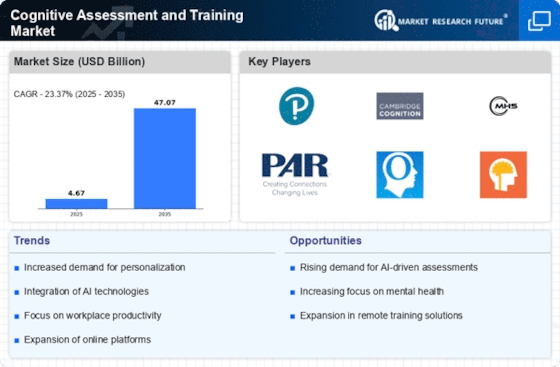
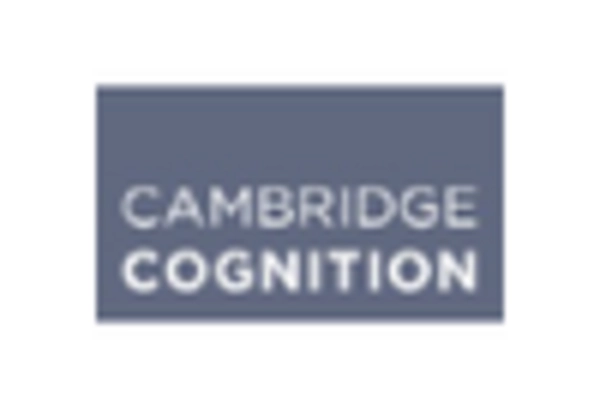

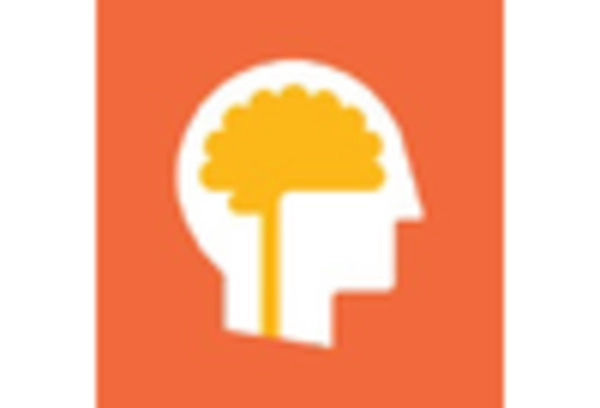
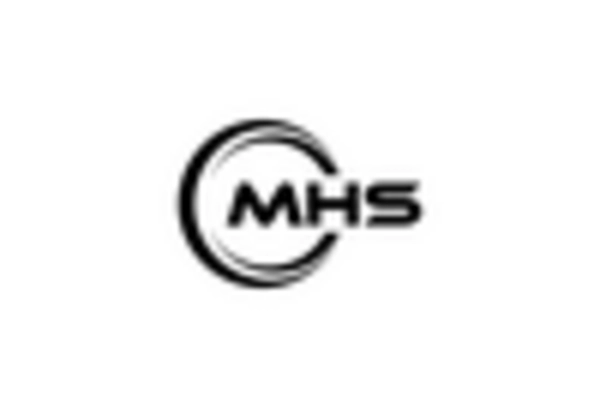

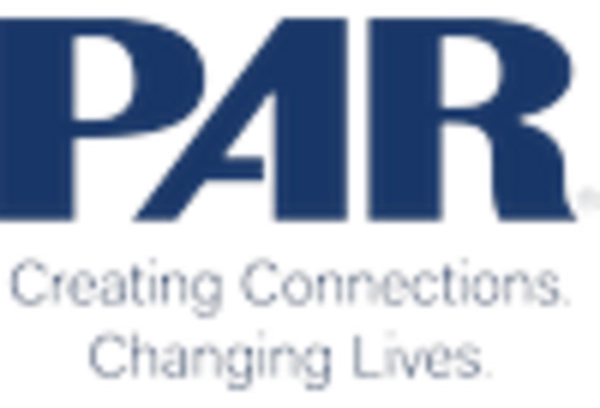









Leave a Comment